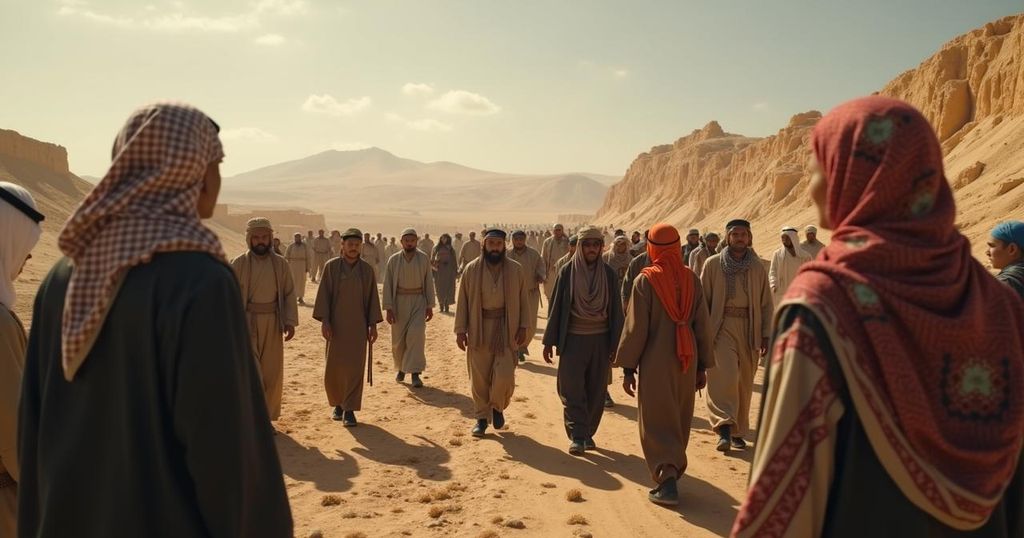The African Union delegation, led by Mauritanian President Mohamed Ould Ghazouani, left Libya after less than a day due to eastern authorities’ refusal to meet them. The refusal followed a controversial request from eastern Prime Minister Osama Hammad regarding access to Libyan assets in Mauritania, specifically the Chinguitty Bank, coupled with implied negotiations concerning Wagner forces.
The delegation from the African Union, led by Mauritanian President and AU Chairman Mohamed Ould Ghazouani, departed from Tripoli following a brief visit that lasted less than twenty-four hours and notably excluded the eastern region of Libya. This decision came after eastern authorities declined to receive the delegation. Political analyst Salah Al-Bakoush indicated that this refusal was linked to a recent request made by Osama Hammad, the Prime Minister of the competing eastern government, during his controversial visit to Mauritania. During that visit, Hammad sought access to Libyan financial assets in Mauritania, including the Chinguitty Bank, previously known as the Libyan Bank in Nouakchott. Al-Bakoush further noted that in return for the facilitation of this request, Hammad proposed potential cooperation regarding the presence of Wagner forces in Mauritania, which have been accused of harboring rebel leaders from Mali. This offers a glimpse into the complex political dynamics at play within Libya. Hammad’s visit to Mauritania took place in late August amidst claims from pro-government media labeling it an official visit, which prompted Mauritania’s embassy in Tripoli to clarify that the meeting was initiated at Hammad’s request.
The political unrest in Libya has generated a fragmented governance structure, divided primarily between the internationally recognized Government of National Unity (GNU) in the west and a rival administration in the east. The eastern authorities, led by figures such as Prime Minister Osama Hammad, frequently engage in diplomatic endeavors to assert their legitimacy and access resources. The situation has been further complicated by foreign interventions and the presence of groups like the Wagner forces. Mauritania’s involvement highlights its strategic position in regional politics, especially concerning Libyan assets and the management of foreign military influences.
In summary, the African Union delegation’s brief visit to Libya underscores ongoing tensions between the eastern and western authorities amidst a fragmented political landscape. The refusal of eastern authorities to engage with the delegation signals significant diplomatic hurdles that remain, particularly in relation to Libyan assets abroad and the influence of foreign military forces in the region.
Original Source: libyaobserver.ly







